
Are you failing to impress?
Having spent years in the field of recruitment, I have seen many candidates fail to impress during job interviews, despite having the right skills and experience.
For example, some candidates may not:
Avoiding these common interview mistakes and practising good interview etiquette can significantly improve your chances of making a positive impression and securing your dream job.


Interviewing while employed?
Scheduling a job interview while you are working can be a delicate process. It's important to be discreet and respectful, as you don't want to jeopardise your current employment before you secure a new opportunity.
Here are some steps to help you discreetly schedule interviews while employed:
Remember that your primary responsibility is to your current employer until you have accepted a new job offer. Balancing a job search while employed can be challenging, but it's essential to do it discreetly and professionally to avoid any potential issues in your current role.
Leading up to your interview

Review your application
Knowing your application inside out is crucial if you want to perform well during your interview. For example, memorising the content of your resume and cover letter can help you to:
However, it's essential to strike a balance and not rely solely on memorisation. You should also be ready to adapt your responses and provide additional information as needed. The interview is an opportunity to expand on the details in your documents and show your personality, communication skills, and how you're a good fit for the company culture.
Research the company
Researching the company before a job interview is essential for several reasons. For example, doing so can help you to:
There are numerous ways you can go about conducting company research. I suggest you:
By conducting comprehensive research, you'll be well-prepared to discuss the company and its industry during your job interview. This will not only impress the interviewers but also help you make an informed decision about whether the company is the right fit for you.


Study the job description
Studying a job description is a critical step in preparing for a job application, as it helps you understand the role's requirements and tailor your application to match the employer's expectations. Here's a step-by-step guide on how to effectively study a job description:
Remember that your goal is not only to show how you meet the job requirements but also to demonstrate that you'll be a valuable and enthusiastic addition to the team.
Practice interview questions
There are some common interview questions you should be ready to answer. For instance:
Remember to tailor your responses to match the specific job and company you're interviewing with. It's also a good idea to practice your answers, so you can confidently articulate your qualifications and experiences during the interview.


Prepare questions to ask
Asking thoughtful questions during a job interview is a great way to demonstrate your interest in the position and to gather important information about the company and the role. Here are some questions you can consider asking:
These questions can help you gain a better understanding of the company and the role, and they also show the interviewer that you are serious about the position. Remember to tailor your questions to the specific job and company, and avoid asking about topics that have already been addressed in the interview unless you need clarification or additional details.
Plan your outfit
Planning your job interview outfit is crucial because your appearance can make a strong first impression on potential employers. Here's a step-by-step guide to help you choose the right outfit for your job interview:
Remember that first impressions matter, and your outfit is a crucial part of that initial impression. Dressing appropriately for the job interview not only reflects your professionalism but also shows your respect for the opportunity.

Plan your route
Before the day of your interview, you should plan your route and mode of transport to avoid unnecessary stress and reduce the likelihood of arriving late.
Face-to-face interviews
If your interview is taking place in-person, I recommend you:
If you are driving to the interview location, then you should:
Online interviews
If your interview is taking place online, I recommend you:

On the day of your interview
What to bring
Bringing the right items to a job interview can help you make a positive impression and be well-prepared for the conversation. Here's a list of items you should consider bringing to a job interview:
Remember to pack these items neatly and professionally in a folder or portfolio if applicable. Arriving well-prepared and organised will help you feel more confident and make a positive impression on your potential employer.

Running late?
Running late for a job interview can be stressful, but it's essential to handle the situation with professionalism and courtesy. Here's what you should do:
Remember that punctuality is highly valued by employers, and running late for an interview is not an ideal situation. However, how you handle the situation can also leave an impression. Being courteous, honest, and respectful can mitigate some of the negative impact of your lateness.
For a more comprehensive guide on what to do if you're running late for an interview, click the button below to read my article on the topic.

Upon arrival
Arriving for a job interview can be a critical moment in your job search process, as it sets the first impression for the potential employer. Here's what you should do when you arrive for a job interview:
If you're interested in learning more about how you can make a great first impression on everyone you meet on the day of your interview, click the button below.

During your interview
What to do
Conducting yourself appropriately during a job interview is crucial to making a positive impression and increasing your chances of securing the position. Here are some tips for conducting yourself effectively during your next interview:
Remember that an interview is not just an opportunity for the employer to evaluate you; it's also a chance for you to assess whether the company and role are a good fit for your career goals and values. Be yourself, be confident, and stay genuine during the interview process.

What NOT to do
During a job interview, it's important to present yourself in the best possible light and make a positive impression on the interviewer. To help you with this, I recommend you avoid:
Remember that a job interview is not just about showcasing your skills and qualifications but also demonstrating your professionalism and cultural fit within the organisation. Avoiding these common mistakes can help you leave a positive impression on the interviewer.

Finish strong
Finishing strong at the end of a job interview is crucial because it leaves a lasting impression on the interviewer. Here are some tips to help you conclude your job interview on a positive note:
Remember to be polite, professional, and confident throughout the conclusion of your job interview. A strong finish can leave a positive impression and increase your chances of being considered for the position.

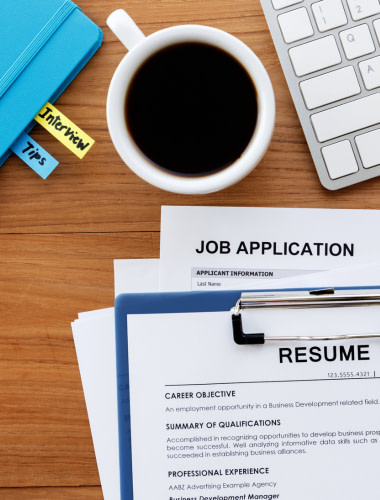
Are you looking for a job?
Now that you know how to ace a job interview, you should take a moment to check our current vacancies page.
At 11 Recruitment, we have a range of white-collar temp and perm jobs available. We're always on the lookout for top talent to place with our clients, so we encourage you to apply for any positions that are of interest.
If none of our current vacancies are right for you, you should register for job alerts. Then we’ll be able to notify you when we receive a position that matches your profile.

What are your thoughts?
I'd love to have a conversation with you about this topic - please leave a comment below if you have any thoughts or opinions 🙂
Christian Madsen
Managing Director of 11 Recruitment



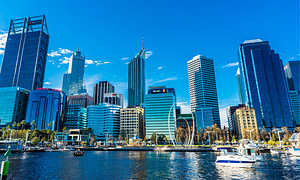



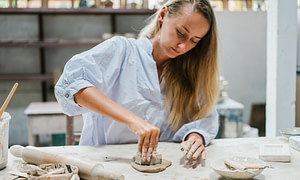
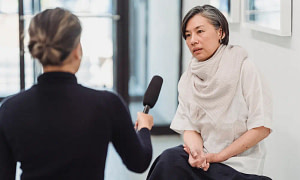







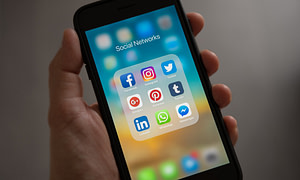
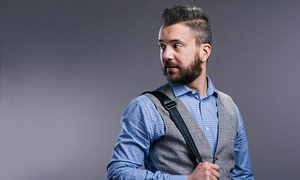

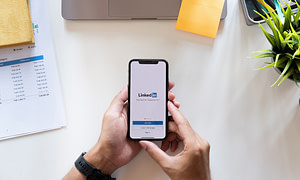

Another great article, Christian. I found your tips on how to conduct research particularly useful – I was definitely lacking in this area before. Thanks again!
Hi Louise, thank you so much for your comment. I’m glad you found the article useful. Good luck in your job search 🙂